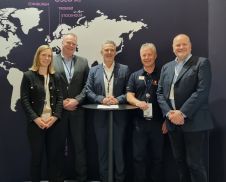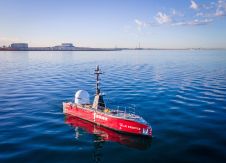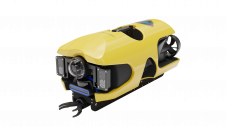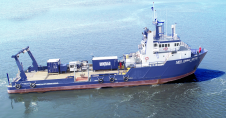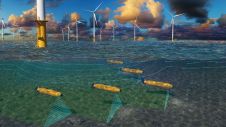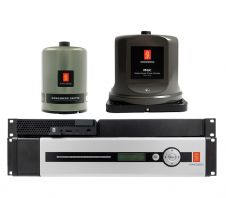Editorial
At the mention of low-budget hydrography, your first thoughts are likely to be of examples of using cheaper equipment or creative and simple methods such as marked coconuts (which just float) to determine the surface current. Even though our initial, automatic thoughts might be of hardware and ways of working, let us not forget the personnel aspect, which is equally important (or maybe even more so). Equipment and shipboard installations have a system of preventive maintenance, upgrading when required and institutions that inspect. Surveying companies that realise the importance of proper maintenance to prevent breakdowns when on the survey area have a similar system for their survey equipment. These principles are ingrained into the consciousness of those who operate ships and survey projects. However, are the same principles of periodic preventive maintenance and upgrading when necessary applied to hydrographic personnel? These preventive maintenance aspects are important to prevent human failure and 'breakdowns' of personnel, especially because surveyors have a 'can do' attitude; but too many hours in poor working and living conditions (e.g. noise, temperature, rolling/pitching vessel), no time for leave or analysing the results at the office and lack of education to handle new sophisticated systems are relevant factors in human failure and 'breakdowns'. Preventive maintenance of personnel needs attention from 'the office' whereby good communication (which includes listening) can prevent fatigue and stress. Not only is this important in order to have more efficient results with less chance of expensive mistakes, but also to keep the surveyors in the business. This is a necessity given that they are becoming scarce and not enough students are graduating from school. These human maintenance aspects are now of extra relevance because, as a result of the present increase in work, almost everyone is out in the field working long hours.
NB: Last year when we were deciding the theme of this issue ('Low-budget hydrography'), we did not think there would be any frowning at these words, but this may occur after all because the substantial increase in volume of surveying work has caused a cost inflation for services and equipment in the surveying business during the past half year.
On the matter of educating the generation of young surveyors, I would like to draw your attention to the article on the hydrography course at the HafenCity University in Hamburg, where a public-private partnership is generating activity in hydrographic education.
There are more initiatives to rouse interest in our profession, e.g. the Classroom@Sea Project (see http://www.soc.soton.ac.uk/CHD/classroom@sea), and hopefully the 21st of June (World Hydrography Day) will be taken as an excellent opportunity for more initiatives to attract attention to hydrographic surveying.
In my previous editorial I mentioned virtual globes such as TerraExplorer, World Wind, ArcGIS Explorer and Google Earth, and I asked when we would have a virtual globe directed at the navigator and scientist. The number of reactions to that editorial was higher than usual and they ranged from pointing at the monopolist danger of Google to offers for an article on the subject, and some passed on related websites to me, e.g.
www.justmagic.com/GM-GE.html/, www.hsa.com.au/GoogleEarth/GEGallery/index.html/, www.googleearth.com and www.gearthblog.com

Value staying current with hydrography?
Stay on the map with our expertly curated newsletters.
We provide educational insights, industry updates, and inspiring stories from the world of hydrography to help you learn, grow, and navigate your field with confidence. Don't miss out - subscribe today and ensure you're always informed, educated, and inspired by the latest in hydrographic technology and research.
Choose your newsletter(s)


















